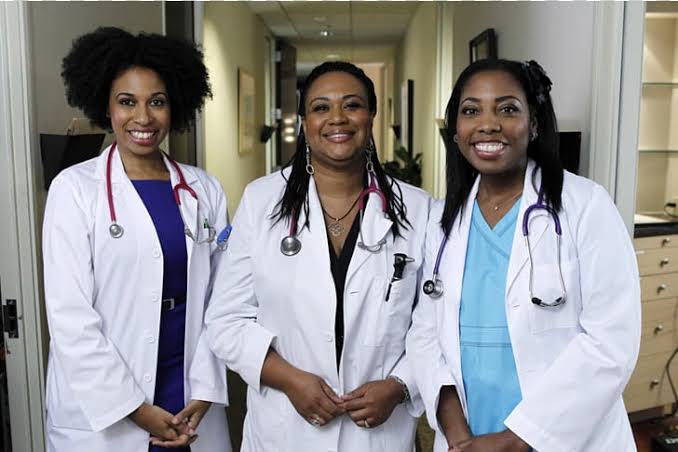Residency in Nigeria is a training graduates of Medicine and Dentistry take in Nigeria for a required amount of time to be able to practice medicine in a specialized area.
The journey in Residency begins when medical graduates complete their housemanship training and afterwards write professional medical examinations for residency requirements.
In Nigeria, there are 2 types of such examinations medical graduates can take. And they can take any of the exam to become a resident.
This article will explain in details all you need to know about Residency training in Nigeria, the examinations they take, and how to enter into one.
How To Enter Into Residency In Nigeria
To become a resident in Nigeria, a medical graduate must first complete their compulsory 1year housemanship program.
After which they can write any of these 2 examinations.
- National Postgraduate Medical College of Nigeria Examinations (NPMCN)or
- West African College of Physicians/Surgeons Examinations (WACP/WACS)
If you decide to take the NPMCN examination to become a resident, they have to start with the NPMCN Primaries Examination.
The NPMCN Primaries exam is an examination that will allow you to become a member of the National postgraduate medical College of Nigeria and also become a medical resident in Nigeria.
However, this examination just allows you to become a Junior Registrar or simply called resident.
The next examination you will take following the NPMCN Primaries is the NPMCN Part 1 Fellowship Examination. This examination allows you to be a fellow of the NPMCN.
And on passing this examination, you become a Senior Registrar.
Following the NPMCN Part 1 Fellowship examination, the next examination you will take is the NPMCN Part 2 Fellowship examination.
On passing the NPMCN Part 2 Fellowship Examination, you will become a Consultant.
After a good number of years, consultants can then choose to take courses and trainings in a very specific field they want to focus on. On doing so, they become a Specialist.
How Long Does It Take To Become A Resident In Nigeria?
In Nigeria, it takes a minimum of 1½ to 2½ years to become a resident or enter into Residency after graduation from medical school.
At this point, you will become a Junior Registrar or simply a Resident.
Let’s break it down below.
The year you graduate medical school, it will take about 1 to 3 months to enter into housemanship.
When you enter into housemanship, you will spend another 1 year.
After your housemanship, you will spend another minimum of 1 to 3 months processing and being called for the NYSC.
When you are finally being called for NYSC, you will spend 1 year for the National Youth service.
In total you will spend about 3months + 1 year + 3 months + 1 year = 2½ years.
If you are exempted from NYSC or you have done it in the past from a previous university degree, you will only need about 1½ year post graduation to enter into Residency.
How Long Does It Take To Become A Senior Registrar In Nigeria?
In Nigeria, it will take about 3 to 4 years to become a Senior Registrar post graduation from medical school.
It will take about 3 years if you are exempted for NYSC or about 4 years if you will be doing NYSC.
However, once you have entered in to the Residency program or become a Junior Registrar, it will only take about 2 to 3 years to become a Senior Registrar.
OTO-RHINO-LARYNGOLOGY HEAD & NECK SURGERY takes 3 years to become a Senior Registrar after entering the residency program).
Orthopedics takes 2½ years to become a Senior Registrar after entering the residency program.
On the other hand, other specialty takes 2 years to become a Senior Registrar post residency.
How Long Does It Take To Become A Consultant In Nigeria?
In Nigeria, it takes anytime from 5 years to 7 years to become a Consultant after entering the Residency program.
That means that it can take about 7 to 9 years to become a Consultant after graduation from medical school.
Specialties such as OTO-RHINO-LARYNGOLOGY HEAD & NECK, ORTHOPAEDICS, Cardiothoracic Surgery, and Neurosurgery take about 7 years to become a Consultant after entering the Residency program.
However, other specialties takes about 5 years to become a Consultant after entering the Residency program.
How Long Does It Take To Become A Specialist In Nigeria?
In the medical line, to become a medical specialist, it will take about 1 to 3 years post being a consultant.
Usually, one will become a specialist after undergoing Fellowship in that areas for some months about 12 to 36 months.
Specialist Vs Consultant
In the medical field, specialist as a word is sometimes used interchangeably to mean consultant depending on how specific the field of the Consultant is.
However, in the true sense, a specialist represents a Consultant that now been made to focus on one particular region/area/tissue of the body.
For instance, an orthopedic surgeon who is a consultant can perform procedures on different areas of the lower limb or upper limb or other axial structures.
However, an orthopedic surgeon can then decide to specialize in a particular area such as the foot. In this instance, they become orthopedic foot surgeon. Or they can specialize in the spine, in this instance, they become a Spinal Orthopedic surgeon.
If one is a consultant GIT surgeon, a specialist will then be a Specialist Pancreatic Surgeon.
It’s important to note that a specialist can always do the work of a consultant in that field. However, a consultant will not always take on the role of a specialist especially if such procedure or practice requires someone completely experienced in that area and it’s a very high risk procedure.
How Much Do Resisdents Earn In Nigeria?
Per month, Junior Registrars in Nigeria are paid between N302,000 to N303,000 Naira. Senior Registrar II are paid N360,000 Naira. Senior Registrar I are paid N460,000 Naira. Consultants are paid about N700,000 to N2,000,000 monthly.
